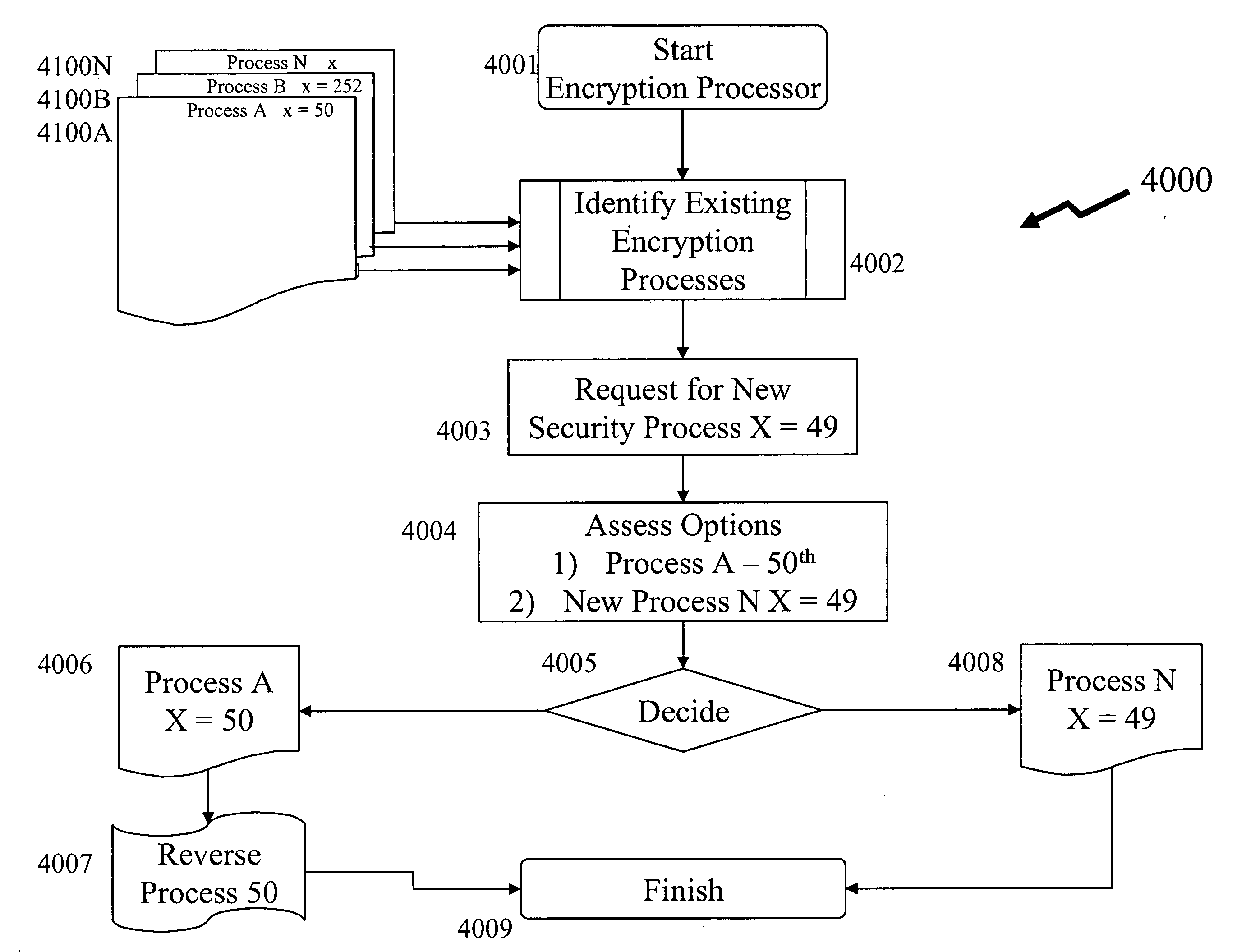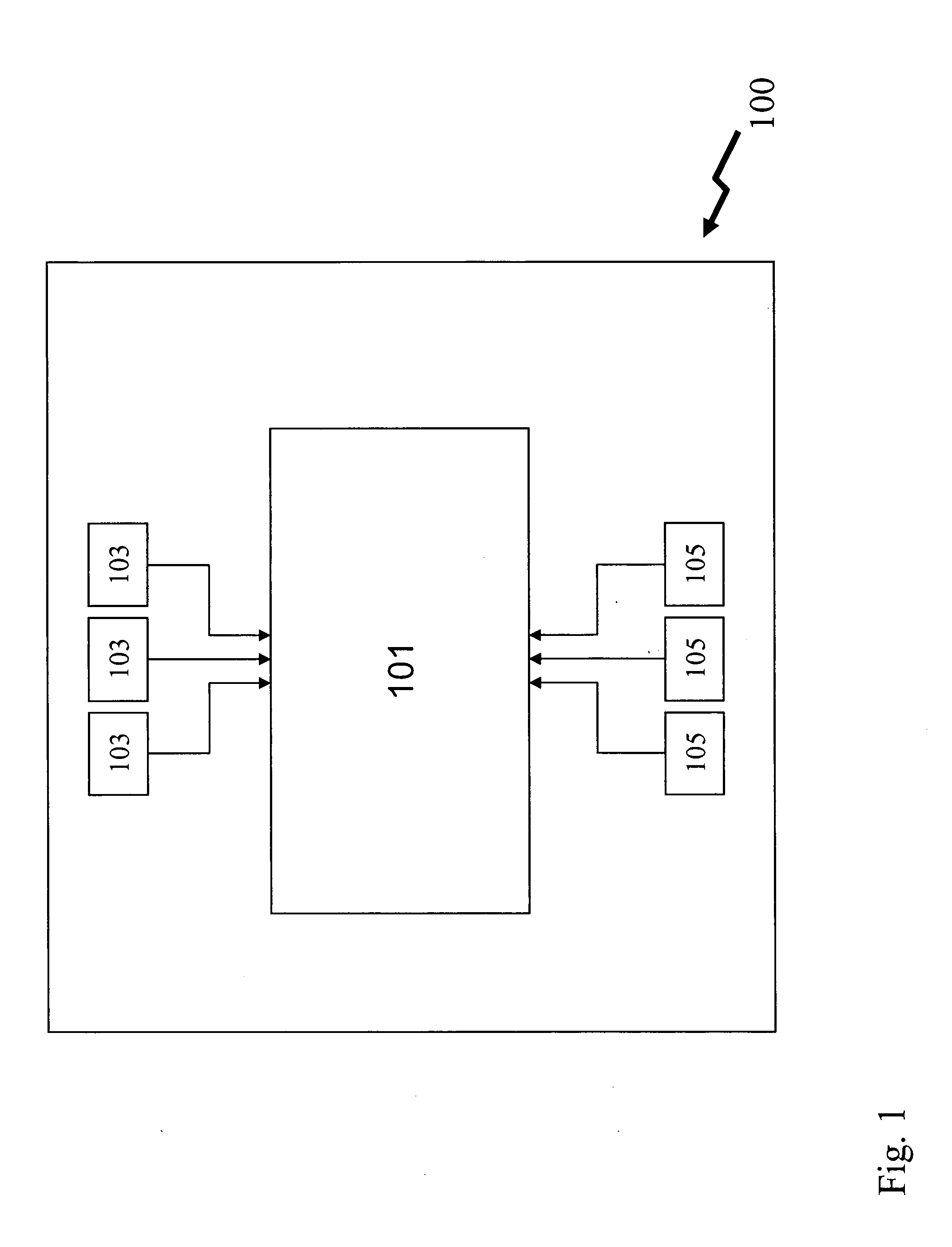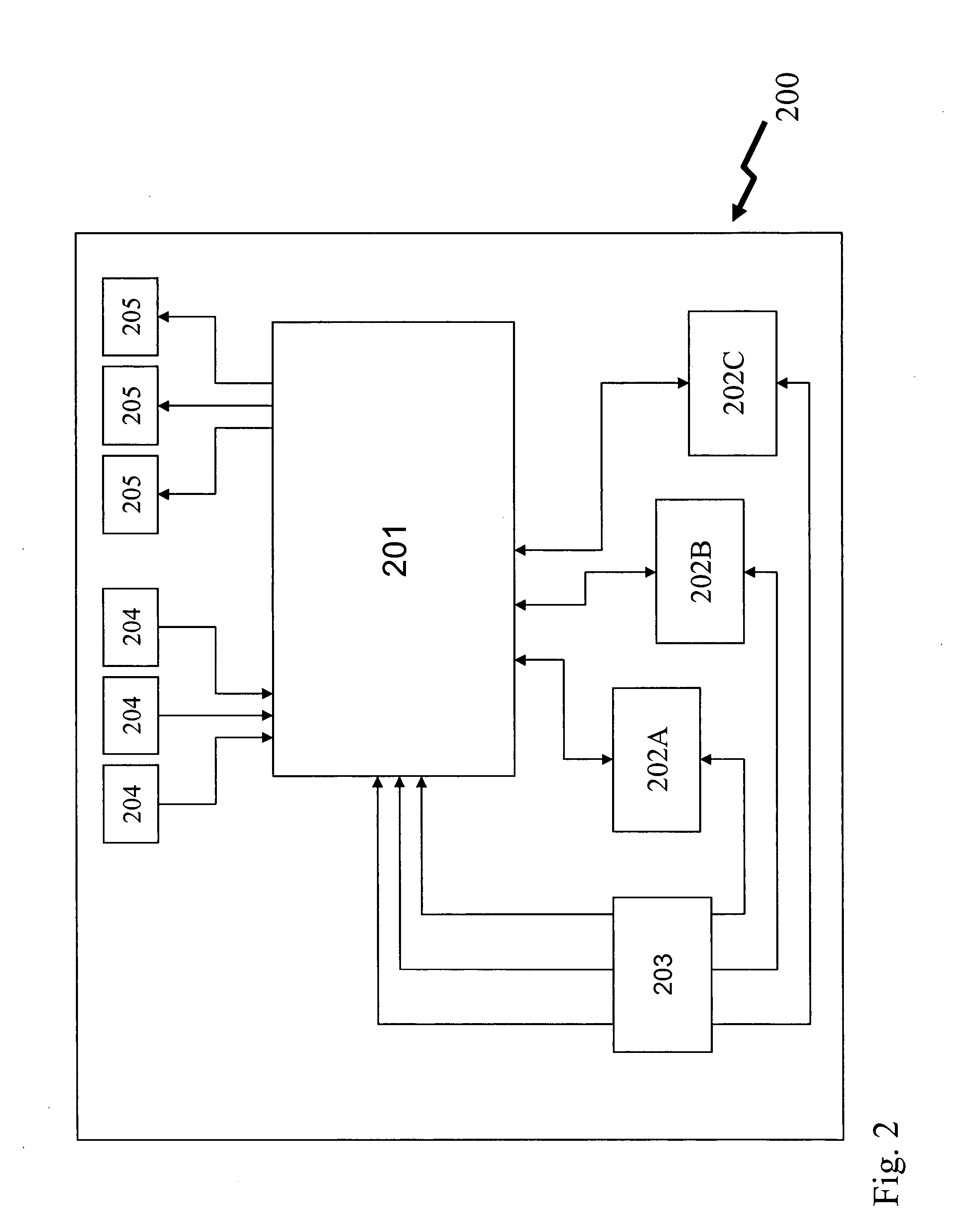Flexible architecture for processing of large numbers and method therefor
a processing architecture and large number technology, applied in the field of microprocessor architectures, can solve the problems of increasing die area and hardware costs, processing drawbacks, and limited prior art to ease this constrain
- Summary
- Abstract
- Description
- Claims
- Application Information
AI Technical Summary
Benefits of technology
Problems solved by technology
Method used
Image
Examples
Embodiment Construction
[0032]Referring to FIG. 1, shown is an encryption processor 100 according to the prior art. As shown, the processor includes a core 101, a number of address data ports 103 for receiving address data and a number of data ports 105 for receiving input data for processing thereof are coupled with the core 101 for use in passing data to and from the core 101. The address ports 103 and the data ports 105 accessible are used by an external processor or process to transfer data for encryption thereof into the integrated circuit. Once the data is transferred to the integrated circuit the integrated circuit processor core 101 accesses internal memory for processing of the data. Typically, processing the data is performed in parallel for all the data to provide maximum throughput. Alternatively, processing the data is performed in a pipeline fashion wherein data is processed at different stages of the encryption process one after another with subsequent data processing parallel to current dat...
PUM
 Login to View More
Login to View More Abstract
Description
Claims
Application Information
 Login to View More
Login to View More - R&D
- Intellectual Property
- Life Sciences
- Materials
- Tech Scout
- Unparalleled Data Quality
- Higher Quality Content
- 60% Fewer Hallucinations
Browse by: Latest US Patents, China's latest patents, Technical Efficacy Thesaurus, Application Domain, Technology Topic, Popular Technical Reports.
© 2025 PatSnap. All rights reserved.Legal|Privacy policy|Modern Slavery Act Transparency Statement|Sitemap|About US| Contact US: help@patsnap.com



